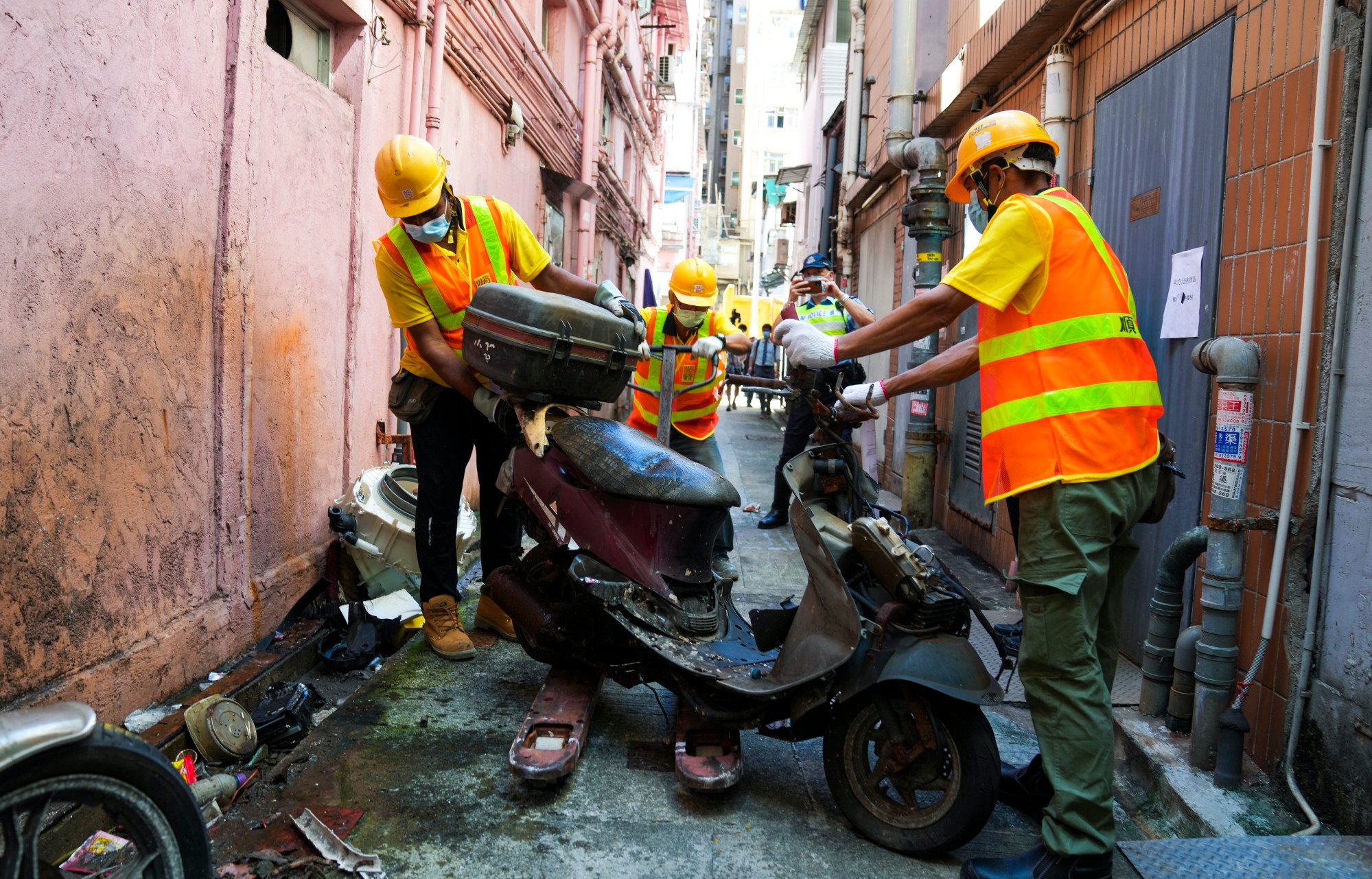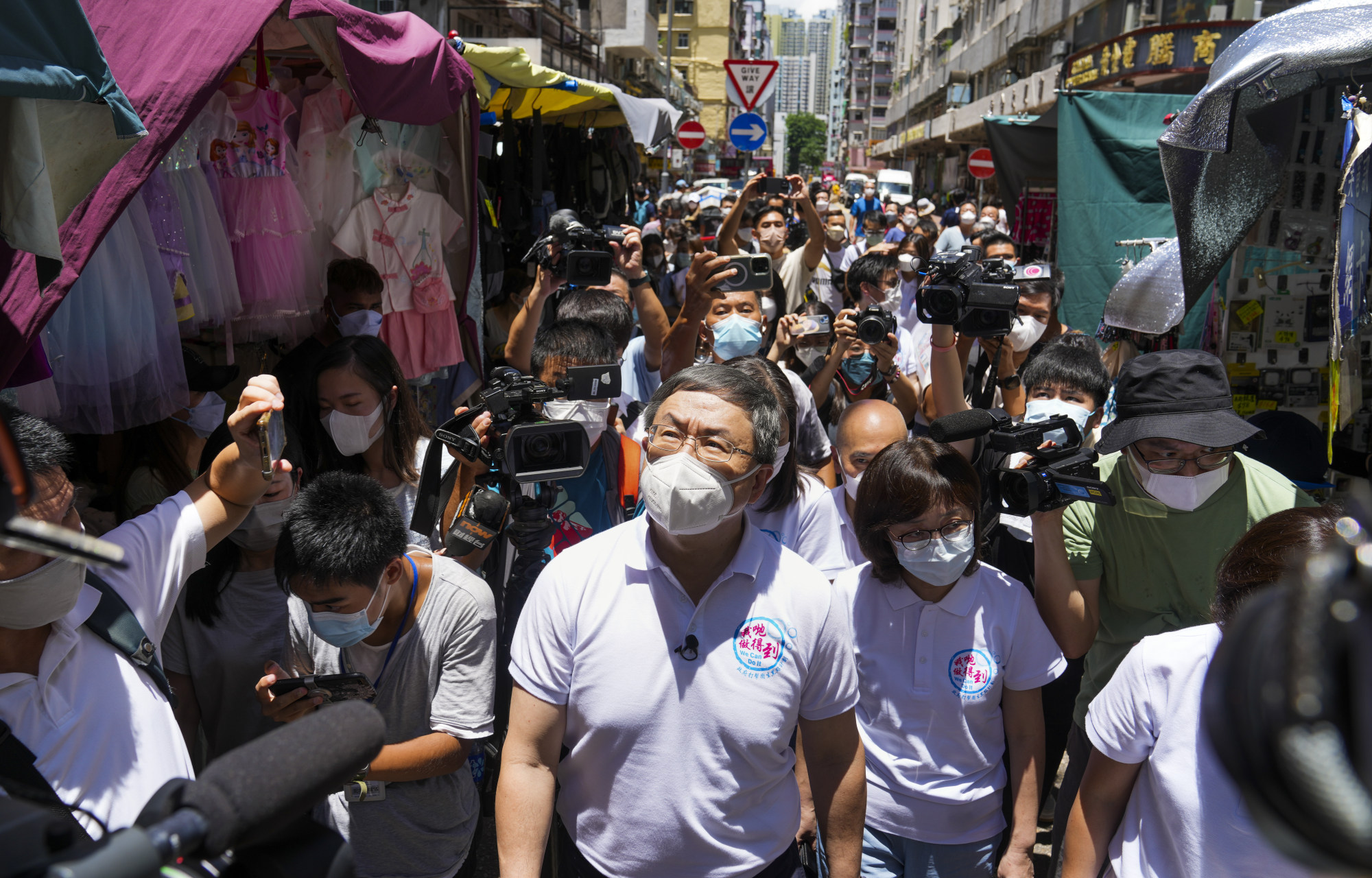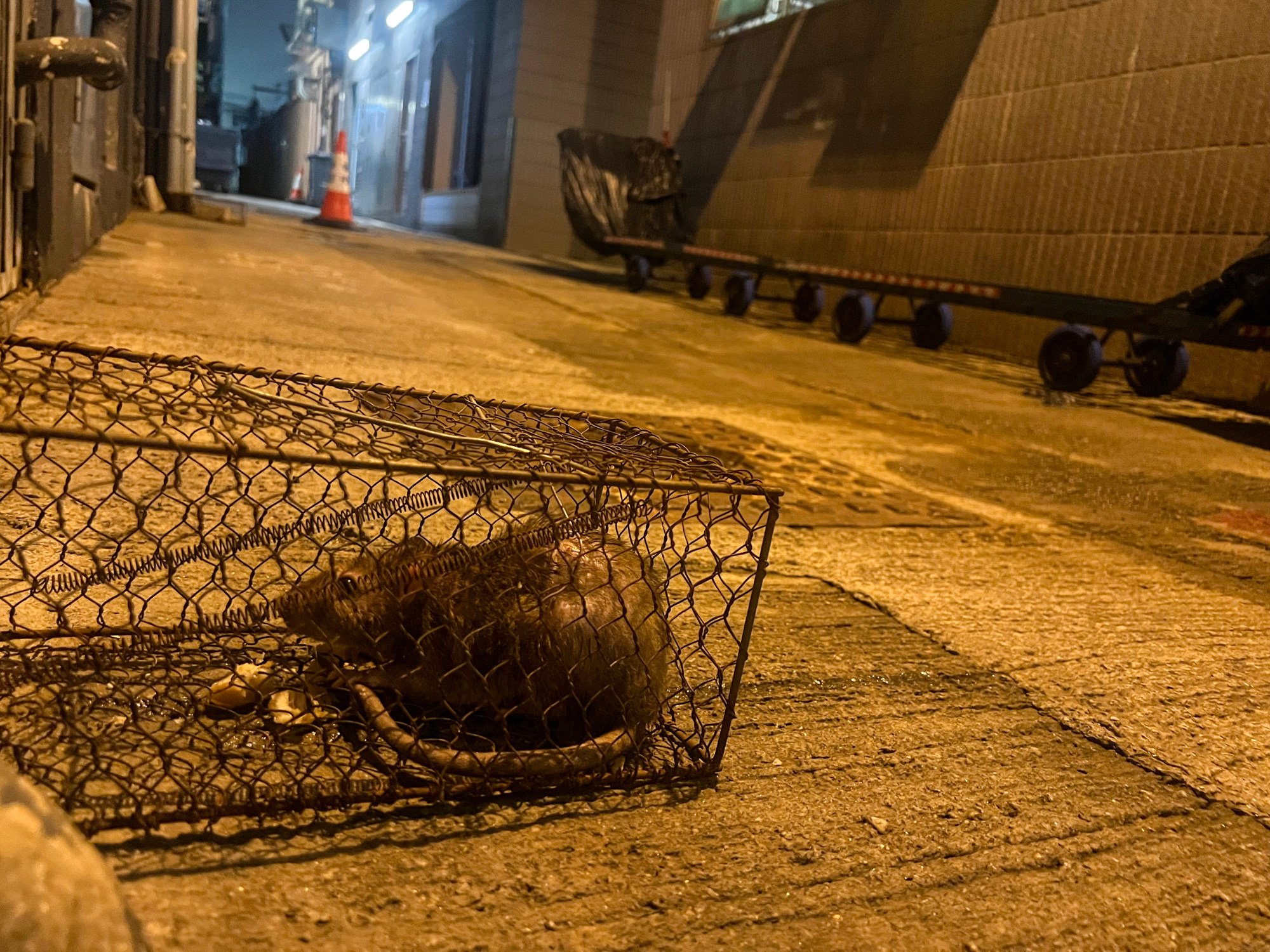
Oh, rats! Hong Kong’s dumped motorcycles worsen rodent scourge in cluttered back alleys
- Government mulls tightening the law, as vehicle owners abandon old motorbikes without a care
- Automobile Association chief says the problem is the lack of scrapping centres for old motorbikes
In a back lane off Hing Yan Street, in Hong Kong’s To Kwa Wan, 15 motorcycles lay abandoned, with parts missing or covered with dust and construction debris.
“Most have been left here for more than five years,” said Chu Wah, 50, an auto repair worker who added that he had just called the Food and Environmental Hygiene Department to complain, because the dumped motorcycles attracted rats.
Pointing to a trap with the remains of a rat long dead, he said the abandoned vehicles had worsened the rodent infestation in the area.
“You will see rats fleeing from the motorbikes, which have become their shelters at night,” he added.

Warner Cheuk Wing-hing, deputy chief secretary in Hong Kong’s new administration, said some alleys looked like “a motorcycle cemetery” but the dumping of vehicles was a deep-seated problem in the city.
He was part of a group of officials who inspected alleys in Yau Tsim Mong district last Sunday to launch a three-month “Hong Kong New Cityscape’’ clean-up campaign, when they found dumped motorcycles along with garbage and discarded clutter.
The first phase of the campaign is targeting 600 black spots notorious for illegal dumping of waste, rat problems and dripping air conditioners, and illegally parked or abandoned motorcycles have been found in 61 of these places.
Between January and June this year, motorcycles were among about 320 abandoned vehicles removed from public roads, parking areas and pavements, according to the Home Affairs Department. Last year, 1,300 vehicles were removed.

On Monday, Cheuk told a radio programme that the authorities were mulling changing the law to punish vehicle owners who did not extend or cancel their vehicle registrations within two years of expiry.
Currently, all vehicles must be registered and licensed before they can go on the road. The registration is cancelled automatically if the vehicle licence has expired for more than two years.

The loophole in the law is that owners who abandon their vehicles are neither held accountable nor penalised.
A spokesman for the Transport Department said the proposed change in the law could take effect in early 2024 and bring a sufficiently stiff penalty to deter owners from dumping their vehicles.

According to the department, 1,855 motorcycles had their registration cancelled last year.
Ringo Lee Yiu-pui, chairman of the Hong Kong Automobile Association, said motorcycle owners should be exempted from prosecution under the new law if their vehicles did not occupy public space and they had valid reasons for not extending or cancelling the registration within two years of expiry.

He said dumped vehicles had become more common because there was a shortage of scrapping centres.
Up until about 10 years ago, Lee said, owners could dispose of unwanted vehicles at a government-run scrap centre. But since it closed, they had to go to private vehicle scrapping shops, he explained.
There are 353 registered vehicle scrapping companies for phasing out Euro IV diesel commercial vehicles under the ex gratia payment scheme, according to the Environmental Protection Department.
These companies are mostly responsible for scrapping cars but can scrap motorcycles too. However, Lee said they were likely to refuse motorcycles which were not included in any subsidy scheme and therefore less profitable than scrapping cars.
Urging authorities to reopen their vehicle scrap centre, he added: “The government should not pass its responsibility to vehicle owners or licensed scrap centres. It should take the lead to effectively correct the issue.”
Pointing out that the sharp rise in food delivery services had led to more motorcycles being on the road, he said there was a shortage of parking lots in Hong Kong and not every motorcycle found in back lanes was an abandoned vehicle.
“If there are enough parking spaces, owners will not park their motorbikes in such a filthy environment,” Lee added.
Transportation Department data showed there were 72,669 registered motorcycles as of June this year, almost twice the 37,798 parking spaces available for them.
But the department told the Post it was “neither reasonable nor sustainable” to increase parking spaces continuously to catch up with the growth in the number of vehicles.
It added that the current policy gave priority to meeting the demand for parking spaces for commercial vehicles.
Meanwhile, at Lok Kwan Street and Wai On Street in Tai Kok Tsui, 20 motorcycles were seen along a back alley strewn with garbage, construction debris and miscellaneous discarded items.

Leung Yiu-cheong, the owner of a motorcycle repair shop in the area, said the vehicles had been left there for years and the place was infested with rats.
He said unwanted motorcycles were usually taken apart, for usable components that could be salvaged. Some vehicles in better shape were sent to countries like India and Pakistan, but the rest would be discarded as scrap iron.
Taking apart a motorcycle was not profitable work, he said, as it could take a worker the whole day to remove useful components that could fetch only a few hundred dollars.
For that reason, motorcycle repair shops refused to accept vehicles with broken engines, and sometimes charged the owners between a few hundred and HK$1,000 (US$127) to scrap the bikes.
“As soon as they realise that scrapping a motorcycle costs money, the owners would rather dump it in an alley, where there is no cost,” Leung said.

